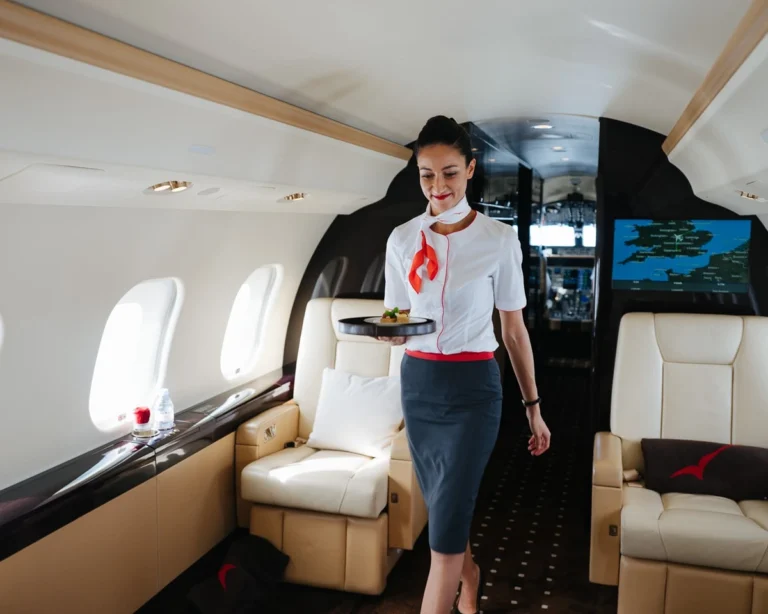When most people squeeze into their cramped economy seats, they rarely consider the elite world soaring above them—private jets where flight attendants serve caviar instead of pretzels and know exactly how each passenger takes their champagne.
These airborne butlers don’t just serve drinks; they orchestrate personalised experiences that make first-class commercial travel look like riding the city bus. The profession combines the precision of a Michelin-star restaurant server with the flexibility of a personal assistant who can source rare truffles while flying over the Atlantic.
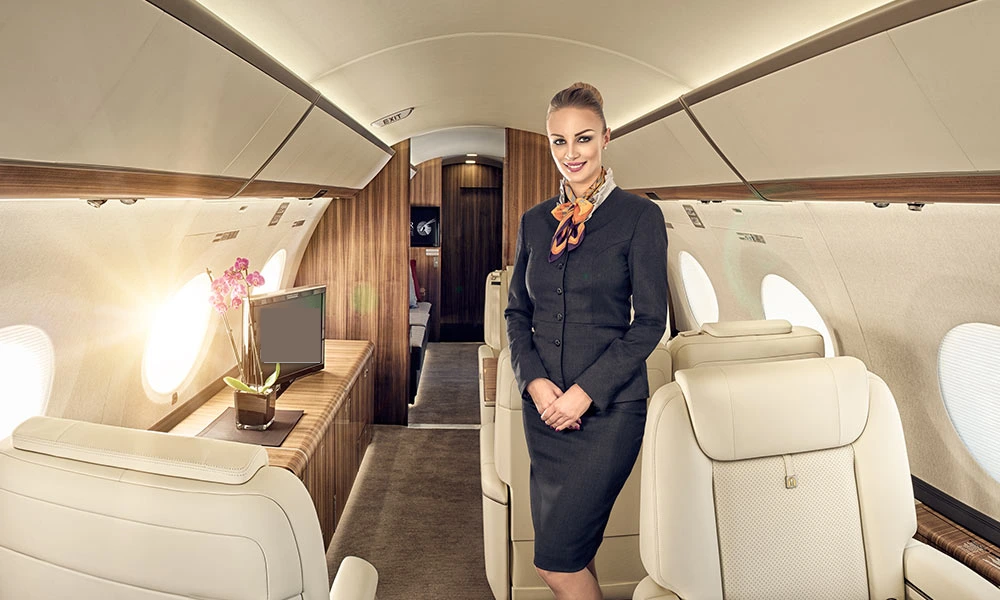
Private Vs Commercial Attendant Salary
Commercial airline flight attendants typically earn between $27,000 and $80,000 annually, with compensation largely determined by hourly rates and seniority. Additional income comes from smaller benefits like credit card commissions and Per Diem allowances for layover expenses.
Private aviation jobs, however, occupy a different financial stratosphere entirely. These positions require extensive experience due to their high-profile clientele and involve significantly broader responsibilities. This exclusivity commands salaries ranging from $40,000 to well over $100,000 annually, depending on the employer.
The variation stems from the diverse operators in the private aviation sector. Individual billionaires, corporations, and charter companies each establish their compensation structures.
In an extraordinary example, Netflix advertised a flight attendant position in 2023 with compensation reaching $385,000 annually—a figure exceeding what many commercial airline pilots earn. While this represents an extreme case, it illustrates the earning potential in this exclusive sector, Simple Flying reported.
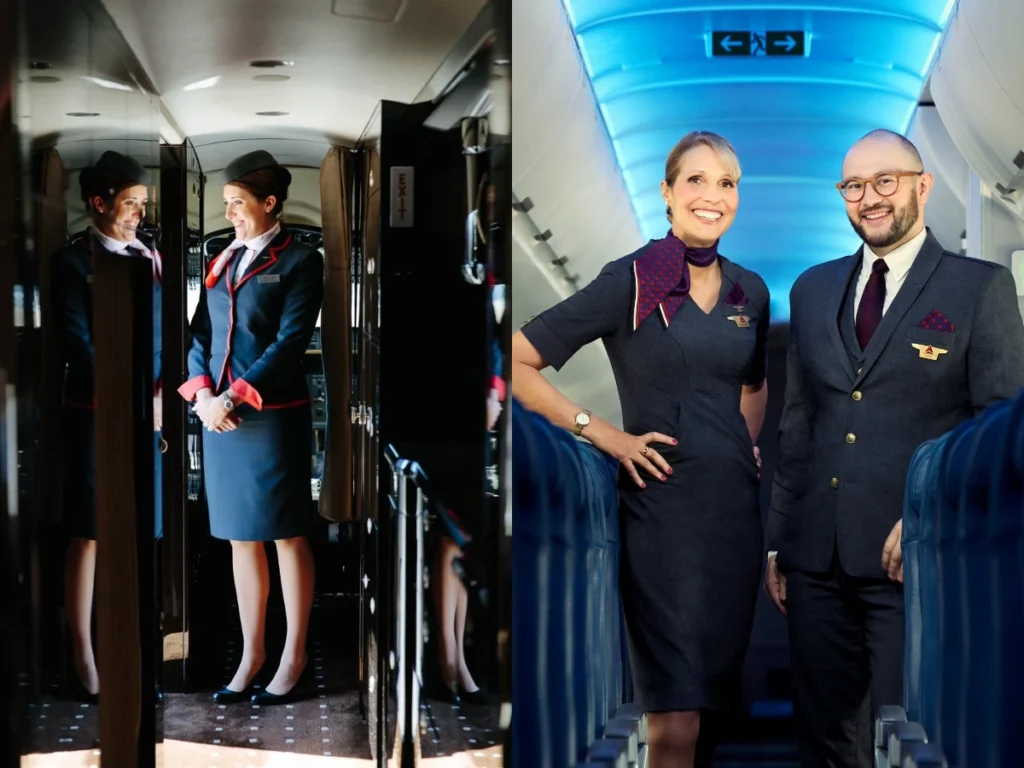
The Demanding Schedule
Commercial flight attendants typically benefit from union-negotiated work rules that establish predictable scheduling patterns. These labour agreements create industry standards that even non-unionised carriers must match to remain competitive.
Flight assignments—ranging from single-day trips to ten-day journeys—are typically scheduled monthly according to seniority.
Private jet attendants face considerably more unpredictable schedules. The on-demand nature of private aviation means these professionals must maintain exceptional flexibility. Some companies implement rotation schedules, such as two weeks on followed by two weeks off. Individual owners often require on-call availability, with some establishing monthly rotation patterns.
Despite these differences, FAA regulations apply equally to both sectors.
Duty periods typically cannot exceed 14 hours without mandating 10 hours of subsequent rest. Ultra-long-range flights require additional crew members and appropriate rest facilities to maintain safety standards.
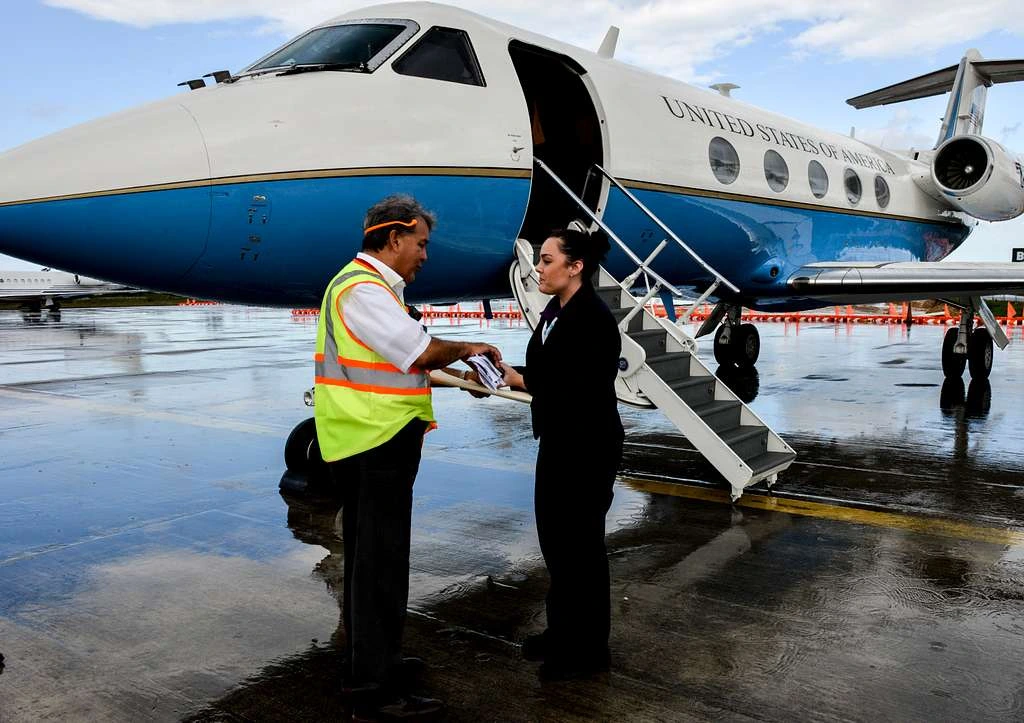
Expanded Responsibilities
Private jet attendants shoulder responsibilities far exceeding those of their commercial counterparts. While airline crews focus primarily on safety procedures and standardised service, private attendants function as one-person hospitality teams. They prepare meals rather than merely serving pre-packaged airline catering. This culinary responsibility requires knowledge of food preparation, presentation, and often specialised dietary preferences.
With minimal ground support staff for private aircraft, these professionals also handle luggage and perform thorough aircraft cleaning. The solitary nature of their position means each task falls solely on their shoulders, without colleagues to assist or verify their work. This independence brings tremendous pressure, especially considering the discerning clientele they serve.
Larger VIP transport aircraft, like Boeing Business Jets, require additional crew members due to their size and passenger capacity, somewhat easing this burden through distributed responsibilities.
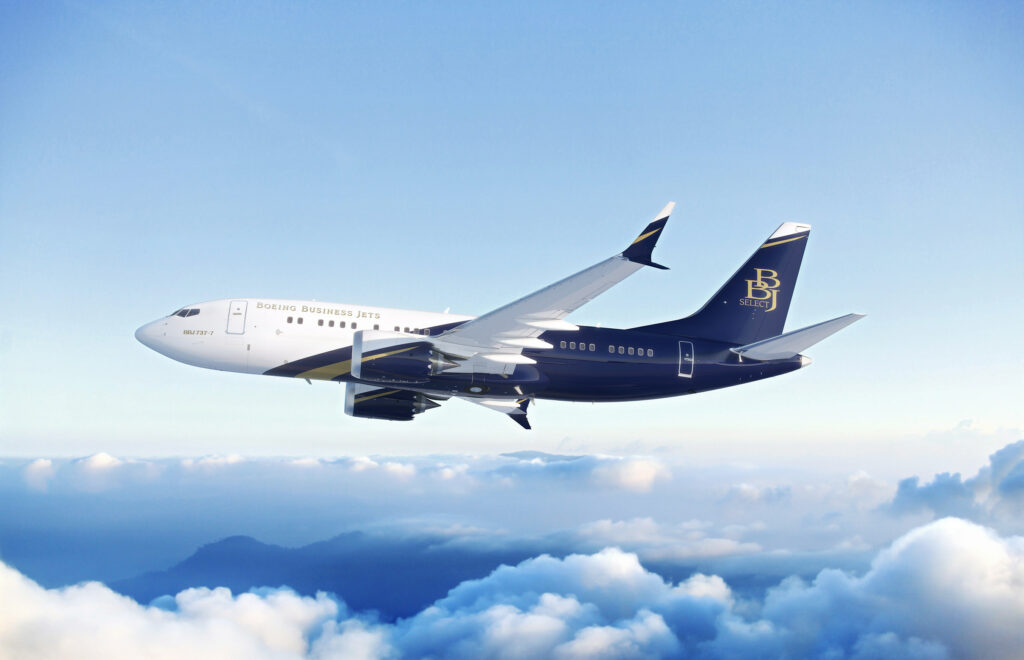
Meeting Sky-High Expectations
Private jet travel represents extraordinary wealth—aircraft cost tens of millions to purchase, with operating expenses reaching thousands per hour. Even partial ownership arrangements or charter services demand substantial financial resources. The clientele paying these premiums expects perfection.
Flight attendants must present five-star quality meals with meticulous attention to presentation. Multiple meal services throughout flights must maintain consistent excellence. These professionals must balance attentiveness with discretion while developing exceptional conflict resolution skills for the inevitable challenging situations.
Corporate-employed attendants follow standardised service protocols, while those hired by individuals essentially work for that specific person. This arrangement allows for developing personalised service relationships but creates potential job security concerns if the relationship deteriorates.
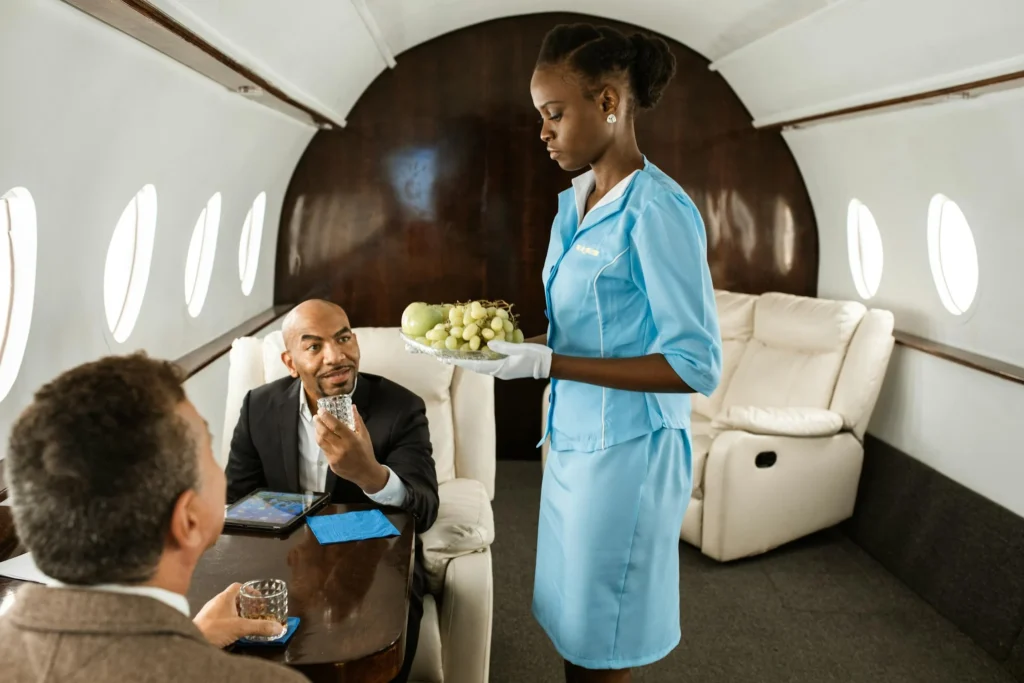
Additional Compensation Elements
Private jet attendants receive varied benefits beyond their base salaries. Larger operators typically provide healthcare, life insurance, uniforms with dry-cleaning services, while smaller employers may place these responsibilities on the employees themselves. Premium accommodations and transportation arrangements remain standard across the industry.
Per Diem allowances compensate for expenses during layovers, with rates tailored to each destination’s cost of living. This means higher allowances for expensive cities like London compared to more affordable locations.
Private aviation often recruits flight attendants from luxury hospitality backgrounds rather than commercial airlines.
Since private jets frequently don’t require cabin crew for safety compliance, employers prioritise high-end service experience over traditional aviation backgrounds.
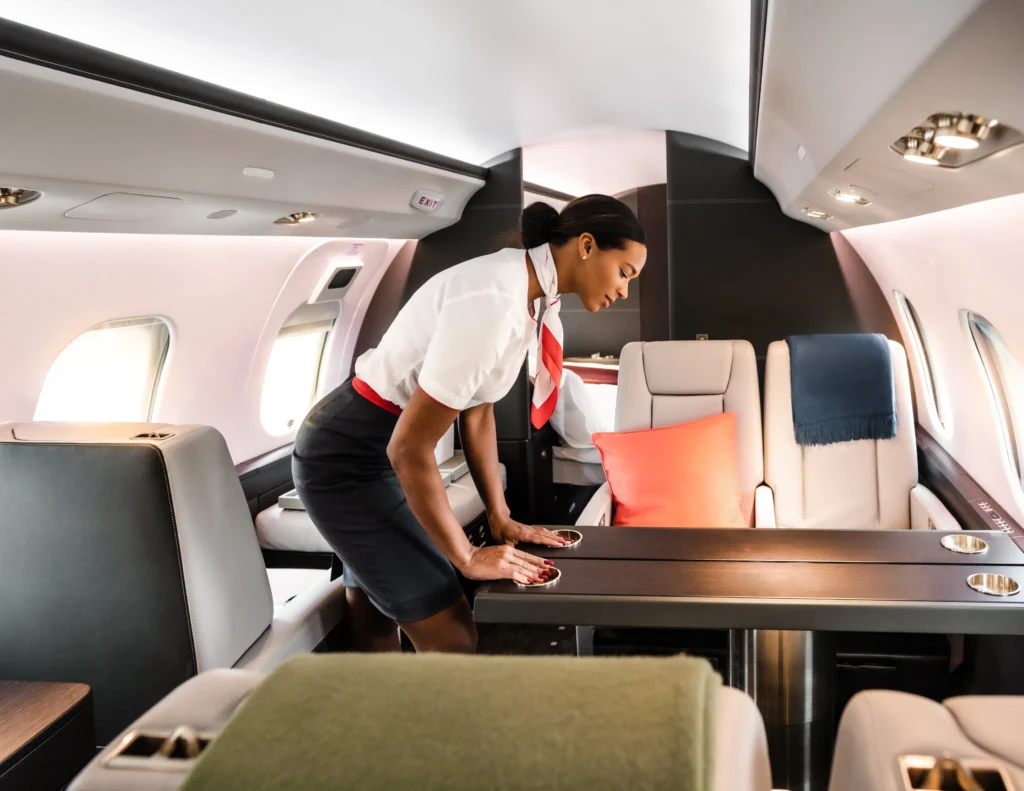
Major Private Jet Operators
America’s 5 largest private jet operators—NetJets, Flexjet, Wheels Up, VistaJet, and FlyExclusive—offer varying levels of cabin service. VistaJet includes a “cabin host” on every flight with additional staff available for supplemental fees. Wheels Up, NetJets, and Flexjet typically provide attendants only on larger aircraft, while FlyExclusive has reduced its flight attendant services.
Training for private jet attendants emphasises luxury service rather than safety procedures.
Their preparation includes specialised courses covering childcare, pet management, wine expertise, and comprehensive hospitality training. The exception occurs with VIP airliner attendants, who require additional safety certification similar to commercial airline standards due to aircraft size.
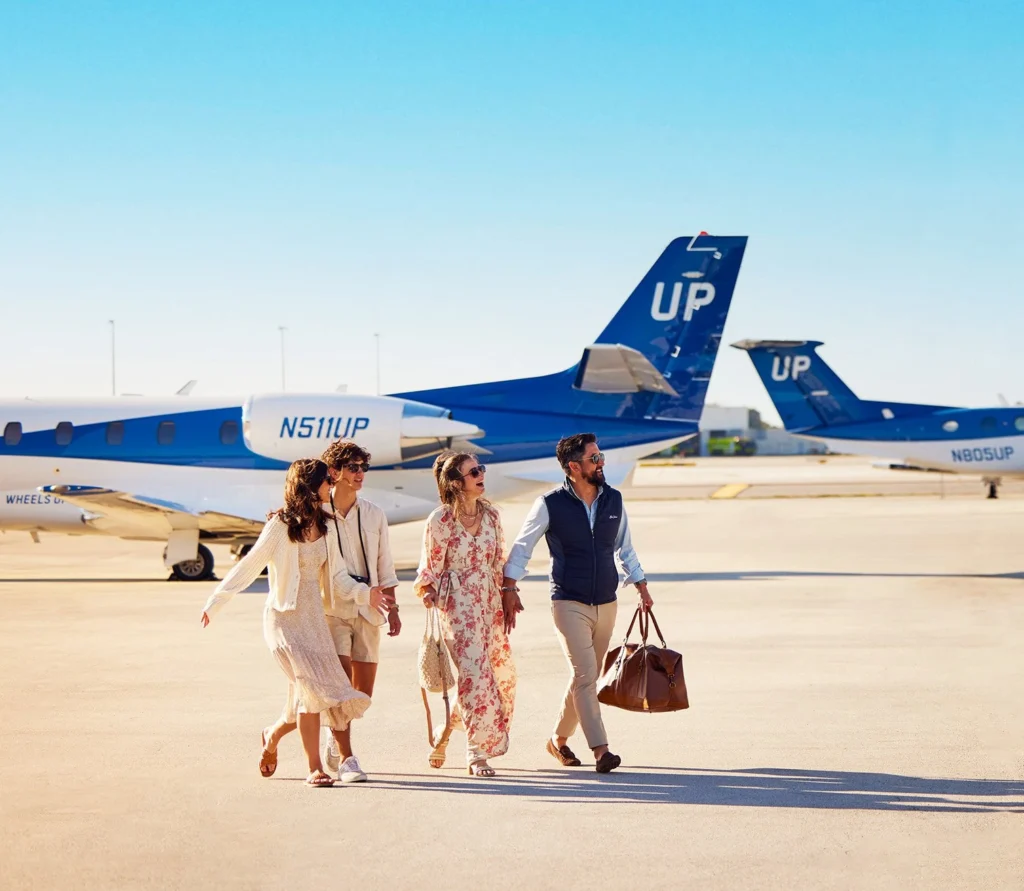
Bottom Line
For those lucky enough to secure positions in this rarefied profession, the combination of exclusive travel, elite clientele, and premium compensation creates a uniquely rewarding career path.
They might miss family birthdays and holidays, but they’ll celebrate somewhere over the Caribbean with billionaires who know them by name. After all, when your office soars at 40,000 feet serving the world’s wealthiest travellers, even the challenges come with champagne!
Stay tuned with us. Further, follow us on social media for the latest updates.
Join us on Telegram Group for the Latest Aviation Updates. Subsequently, follow us on Google News

